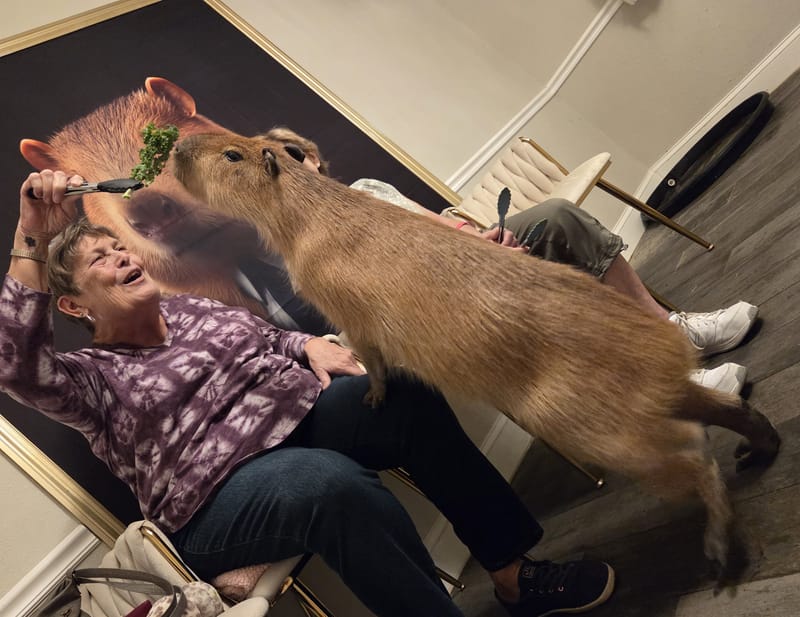OPINION: Ruling on stray dogs is ineffective, impractical, inhumane
Medford resident Prabitha Natarajian says a recent ruling in India is cruel to stray dogs and makes a mockery of all the humane efforts of individuals and organizations.
By Prabitha Natarajian
On August 11, the Supreme Court of India passed one of the most controversial orders to the authorities in New Delhi: capture 5,000 dogs, sterilize them, and relocate them to “shelters” within just six to eight weeks. This was done in the wake of an increase in dog bite incidents leading to an uptick in rabies, including the recent death of a six-year old due to stray dog attack. While it is absolutely not okay to have rabid animals around in your community, isn’t it easy to deflect the blame on homeless dogs? This move by the Supreme Court of India is unprecedented, going against the Prevention of Cruelty (Animal Birth Control/ABC) Rules established by the Indian Central Government in 2023 recommending a humane approach and prohibiting relocation.
Naturally, this has led to a widespread uproar among animal activists and communities fighting for fairer animal treatment. Cruel animal treatment by officials in India should not come as a surprise to anyone, despite powerful voices. One such voice is that of Maneka Gandhi, who is a politician and an animal rights, human rights and environmental activist; and more recently, that of Rahul Gandhi, the leader of the opposition party who joined the fight by saying on the social media platform X, “The SC’s directive to remove all stray dogs from Delhi-NCR is a step back from decades of humane, science-backed policy.”

As an immunologist who studied and understands infectious diseases at a molecular level and a Medford-based international animal rescuer playing a part in solving this exact problem in both India and the U.S., I take issue with this ruling. I deeply care about the environment, the harmony between humans and other animal life, our health and the health of the ecosystem as a whole. I am a member of the Medford Energy and Environment Committee (MEEC), where I am advocating and focusing my efforts to increase Medford’s climate resiliency among other efforts. I volunteer at the MRFRS Sunday Clinic in Methuen and Charles River Alley Cats where we (volunteers, vets, and technicians) come together to help solve this exact problem. We trap homeless animals, spay/neuter and vaccinate them, treat any life threatening injuries, find them a home if they are adoptable, or release them back to where they came from. I have trapped several litters of kittens and adults from Medford after receiving a call from a concerned neighbor. Most of those kitties now live in loving homes.
This issue of rabies in India is a longstanding one and the country accounts for 36% of the world’s rabies deaths. The World Health Organization also reports that these numbers could be much higher as not all incidents are reported. While implementing policies to combat this cannot be questioned, the method in question is highly at odds with proven solutions from all around the world and within India itself. Delhi does not have the infrastructure or financial means to support these “captured” animals in shelter-like environments. This stunt is simply a government sponsored culling which will make no distinction between a pet, an already vaccinated animal, or an animal with active disease. Additionally, the number of 5,000 strays is not backed up by facts, and in reality there are thousands more.
An overpopulation of strays is a failure of the government and the community as a whole. The population of dogs did not get out of hand overnight. It got out of hand because the Animal Birth Control (ABC) measures already in place were not implemented and the stray dog population was slowly creeping up. The solution requires consistent sterilization in all communities and will not be solved by one big bang approach. The Supreme Court's ruling is shortsighted and needs to recognize that Delhi is not alone when it comes to the issue and does not have to reinvent the wheel.
While not completely stray-free, Mumbai city in India has better control over this issue simply by adopting the proven method of spay/neuter and vaccination. Netherlands is one of the first countries to have solved the stray animal issue by systematically applying the two-pronged approach discussed earlier: spay/neuter and vaccination without any widespread culling or euthanasia. This is effective and does not involve subjecting animals to cruelty and suffering. Vaccinating the community animals prevents the spread of infectious diseases, and sterilizing them (spay/neuter) eventually brings the stray population under control, one day even reaching the dream of a stray-free state and, dare I say, country.
Let’s tackle the dog aggression issue. Dogs, even those without rabies, exhibit aggression towards humans for a multitude of reasons, such as their territorial nature, lack of food, and human abuse, all of which are exacerbated with overpopulation. Rabies is a neurotopic virus that affects the brain and alters the behavior of its host, making an animal infected with rabies become aggressive and lose their fear of other animals and humans. While this miserable disease is fatal for the dog and human victim, it is entirely preventable in both dogs and humans. I personally have taken the rabies vaccine as a preventative and after a dog nip (a series of single shot vaccinations).
The internationally accepted and proven practice of spay/neuter and vaccination provides a long-term effective solution to this problem but requires decades of dedicated and systematic implementation. We hope the international attention on Delhi helps immediate withdrawal of the ruling and allocate funding for its own ABC ruling passed in 2023.
Humanity aside, why this ruling will absolutely not work is because when strays are removed from an area, it is an invitation for animals from neighboring locations to move in as there is less competition for food. It is similar to us moving into a neighborhood where the property prices are cheaper and the competition is low. Newer dogs in the area will bring along issues of territorial conflicts, which will worsen the problem that is at the forefront.
While the ruling appears to come from a place of concern for human life, it targets animals and makes a mockery of all the efforts of compassionate individuals who have been working in this space for years. The rabies crisis is solvable in a nation like India that has eradicated polio, a feat that was once thought impossible. India should rather adopt the well proven strategies from nations who have tackled this successfully without vilifying the animals in this complex issue.
In order to voice against this ruling, I am organizing a peaceful gathering on Sunday, August 24, at 8.30am, on the Boston Common through my rescue organization, Feet For Paws. We stand along with the animal activist community in India and abroad who are putting their life on the line in protest of this ruling. This is an opportunity to voice your support by participating in our peaceful gathering in person or virtually. More details can be found here.





